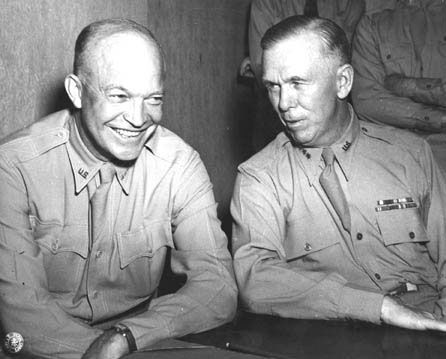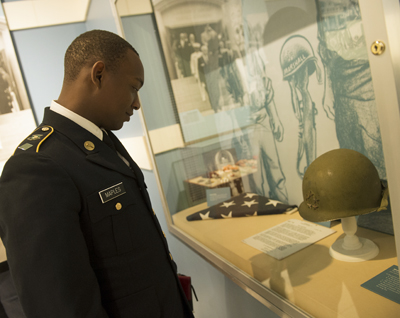Congress has agreed on something: designating a National Museum and Library for George Marshall. Now it's the Senate's turn.
-
Summer 2017
Volume62Issue1
Historian David McCullough tells a story about teaching an honors seminar to 25 history majors at Dartmouth College. When he asked the students if they knew who George Marshall was, nobody raised their hand. After a long silence, one student inquired, “Did he have something to do with the Marshall Plan?”
"Yes, I said," replied McCullough. "And that’s where we started talking about the General who supervised the U.S. Army during World War II and later received the Nobel Prize as Secretary of State."
We should not be surprised that young people are largely ignorant of one of the most important leaders who won the Second World War, since military history has been so rarely taught in schools and universities in recent years. But that's another topic.

As a young Army officer, Marshall served on the headquarters staff of the American Expeditionary Forces during World War I. where he was a key planner of American operations including the Meuse-Argonne Offense. As Army Chief of Staff, Marshall organized the largest military expansion in U.S. history, choose the key leaders, and was promoted to five-star rank as General of the Army.
While serving as Truman's Secretary of State, Marshall gave the Commencement speech at Harvard on June 5, 1947 that defined the Marshall Plan, also known as the European Recovery Program. In the speech Marshall said it was important to consider not only the terrible loss of life in Europe but also the destruction of her cities, factories, mines, and railroads. He said this loss, however, “was probably less serious than the dislocation of the entire fabric of [the] European economy.” Marshall said the policy of the United States “is directed not against any country or doctrine but against hunger, poverty, desperation and chaos. Its purpose should be the revival of a working economy in the world so as to permit the emergence of political and social conditions in which free institutions can exist.”
The Marshall Plan allocated more than $13 billion in an effort to help post WW II Europe recover, an effort that was widely considered a great success. For his work in restoring European political and economic life, Marshall was awarded the Nobel Peace Prize in 1953; a recognition we feel was well deserved.
Plans are now underway for the George C. Marshall Foundation in Lexington, Virginia to be officially designated as the George C. Marshall Museum and Library. A measure that was introduced by Congressman Bob Goodlatte [R-VA] for the designation passed in the House and now moves on to the Senate for their consideration. Passage marks a significant moment for the George C. Marshall Foundation.
"This Congressional designation provides a de facto recognition of the role this institution has played in keeping alive the memory and the legacy of one of the greatest Americans of the twentieth century, General George C. Marshall," said President Rick Havers.

The designation would further highlight the contributions of an extraordinary American. We can only hope that in the future we will again see the leadership and commitment of more people like Marshall. Hopefully the designation will help teach a new generation the importance of those qualities.

